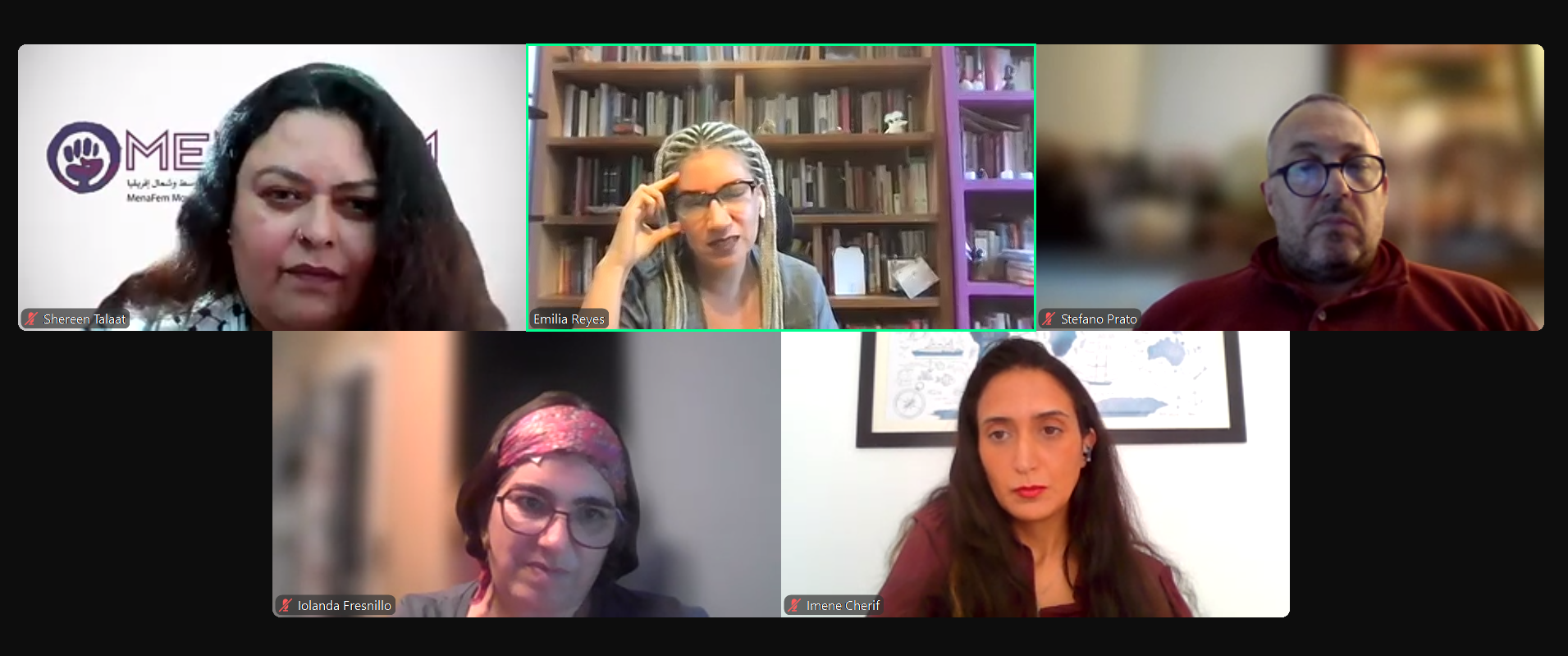The global economic situation remains precarious, with rising inequalities, unsustainable debt levels, and persistent economic shocks hindering progress toward sustainable development. The COVID-19 pandemic, combined with geopolitical tensions and climate-related disruptions, has exacerbated vulnerabilities in both developing and developed countries. Many governments are struggling to manage escalating debt burdens, leading to austerity measures that disproportionately affect marginalized communities. The global financial architecture driving these dynamics is increasingly being scrutinized for its neo-colonial nature and role in deepening inequality, undermining human rights, and limiting countries’ policy space to pursue equitable development strategies.
The MENA region, along with the different countries of the Global South is facing its own set of unique economic and social challenges. Histories of colonization, centuries of imperialism, and years of conflict, political instability, and structural inequalities have led to rising poverty levels, weakened public services, and entrenched gender disparities. The region suffers from high unemployment rates, particularly among women and youth, coupled with limited access to financial resources and opportunities. Furthermore, the dominance of patriarchal systems and restrictive socio-economic policies has perpetuated discrimination and hindered efforts toward gender equality.
The Financing for Development (FfD) process is a critical global framework guiding discussions on how financial resources can be mobilized to achieve sustainable development goals, including tackling inequalities and ensuring economic justice. Since the inception of FfD, it has provided a vital space for states, international organizations, and civil society to engage in shaping global financial systems that influence national policies and development outcomes. The third International Conference on Financing for Development (FfD3) held in Addis Ababa in 2015 resulted in the Addis Ababa Action Agenda (AAAA), which laid down comprehensive commitments to financing the 2030 Agenda for Sustainable Development. Despite those commitments, challenges remain, particularly in MENA.
In this complex environment, the FfD process holds significant relevance for the region, offering opportunities for civil society, especially feminist movements, to advocate for economic policies that center gender justice and inclusive development. However, engagement from the MENA region in global financing discussions has been limited, highlighting the need for targeted efforts to build awareness and capacity among civil society actors in the region.
Webinar Recap: FfD4 – Strategies for Civil Society Engagement in the MENA Region
MENAFem organized a webinar on September 12, 2024, titledFfD4: Strategies for Civil Society Engagement in the MENA Region. The webinar aimed to demystify the FfD process for civil society in the MENA region, with a specific focus on feminist perspectives, and highlighted pathways for meaningful engagement in the lead-up to FfD4. The goal was to build the knowledge and capacity of feminist movements and broader civil society in the region, enabling them to actively participate and advocate for gender-just financing solutions at global and regional platforms.
Speakers included:
- Stefano Prato
- Chenai Mukumba
- Emilia Reyes
- Iolanda Fresnillo
- Imene Cherif
Moderated by MENAFem’s own Shereen Talaat, the webinar explored key pathways for MENA civil society to influence global financing systems and advocate for inclusive development strategies.
Launch of the FfD MENA Coalition
During the webinar, MENAFem launched the FfD MENA Coalition. The FfD MENA Coalition is a regional alliance committed to transforming the global financial architecture and reshaping financial systems in the Middle East and North Africa to be more just, equitable, and sustainable. We advocate for financial reforms that prioritize social justice, debt relief, and economic sovereignty, while challenging austerity, exploitation, and neocolonial practices. By bringing together civil society organizations, activists, and experts, the coalition works to promote policies that serve the wellbeing of people and the planet, ensuring inclusive and accountable economic governance across the region. Join us in our efforts to create a fairer financial future for all.


